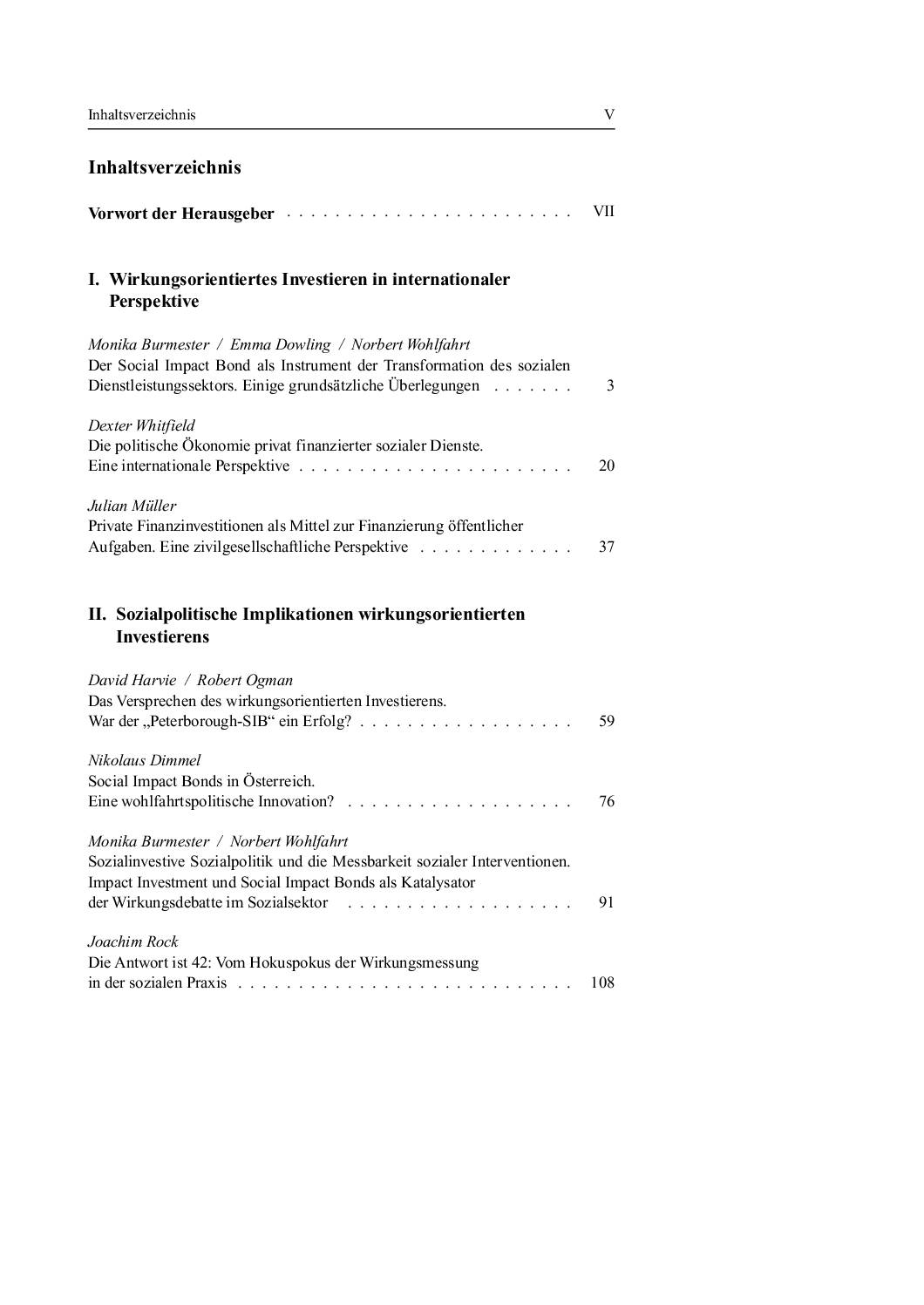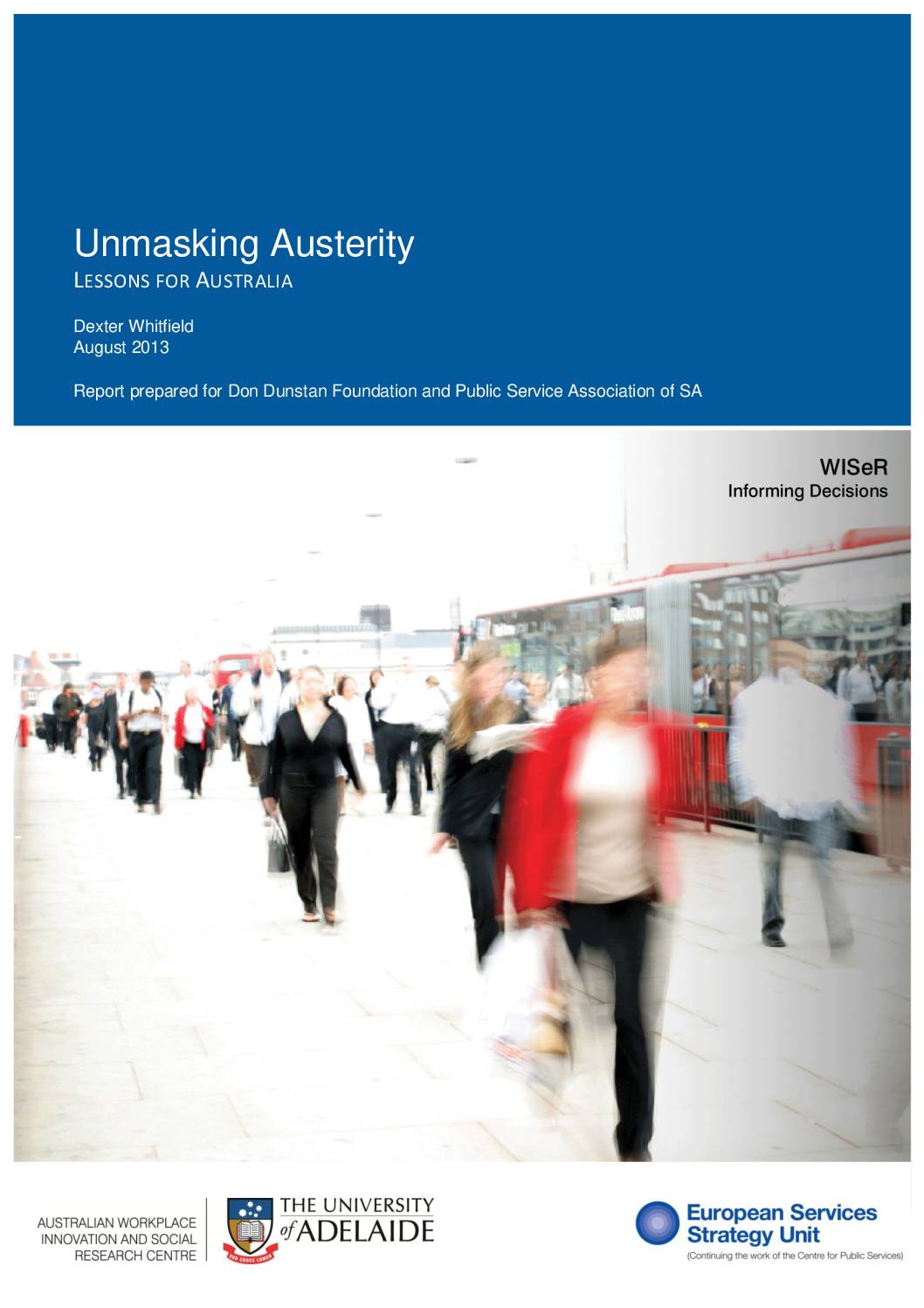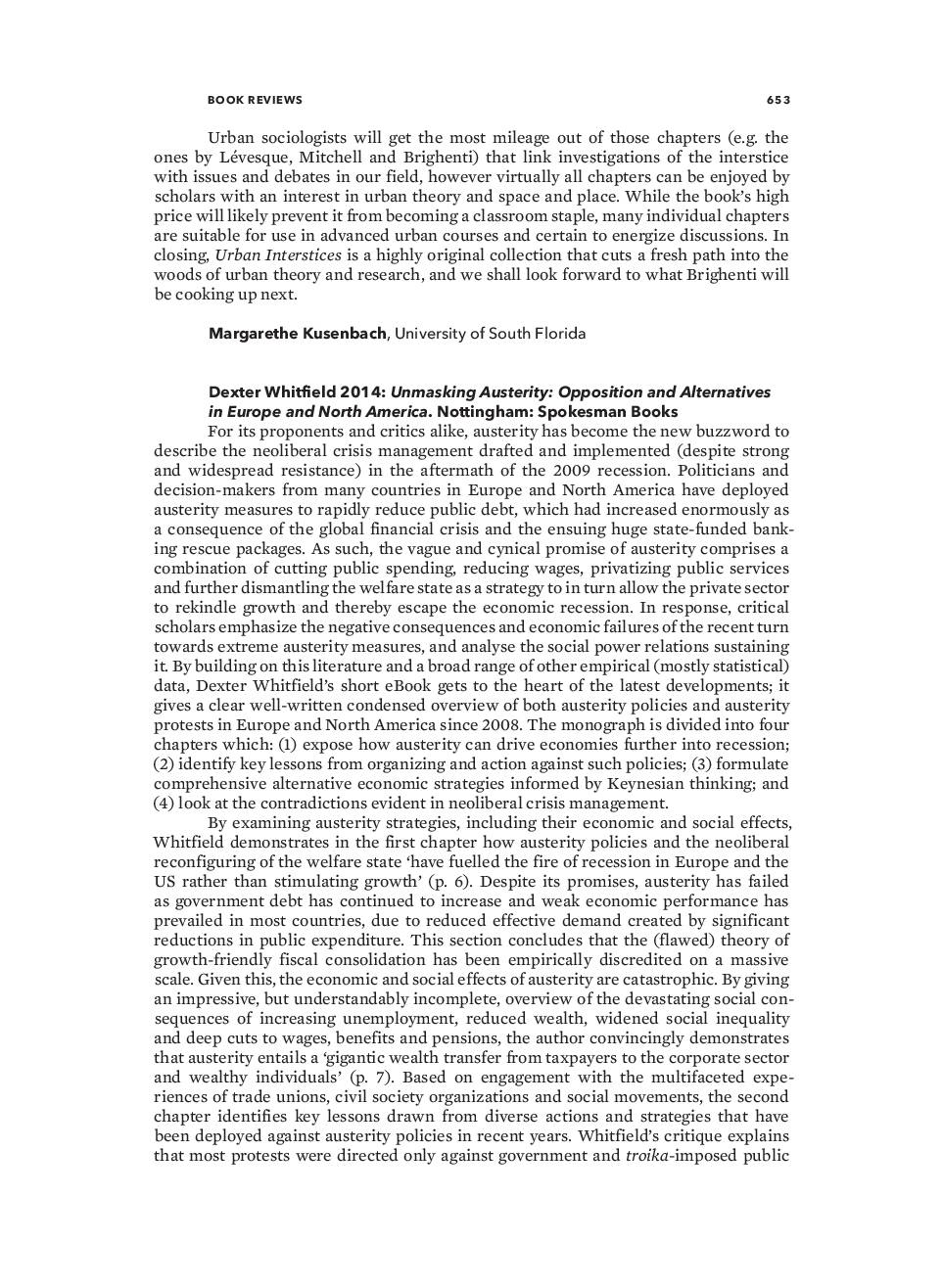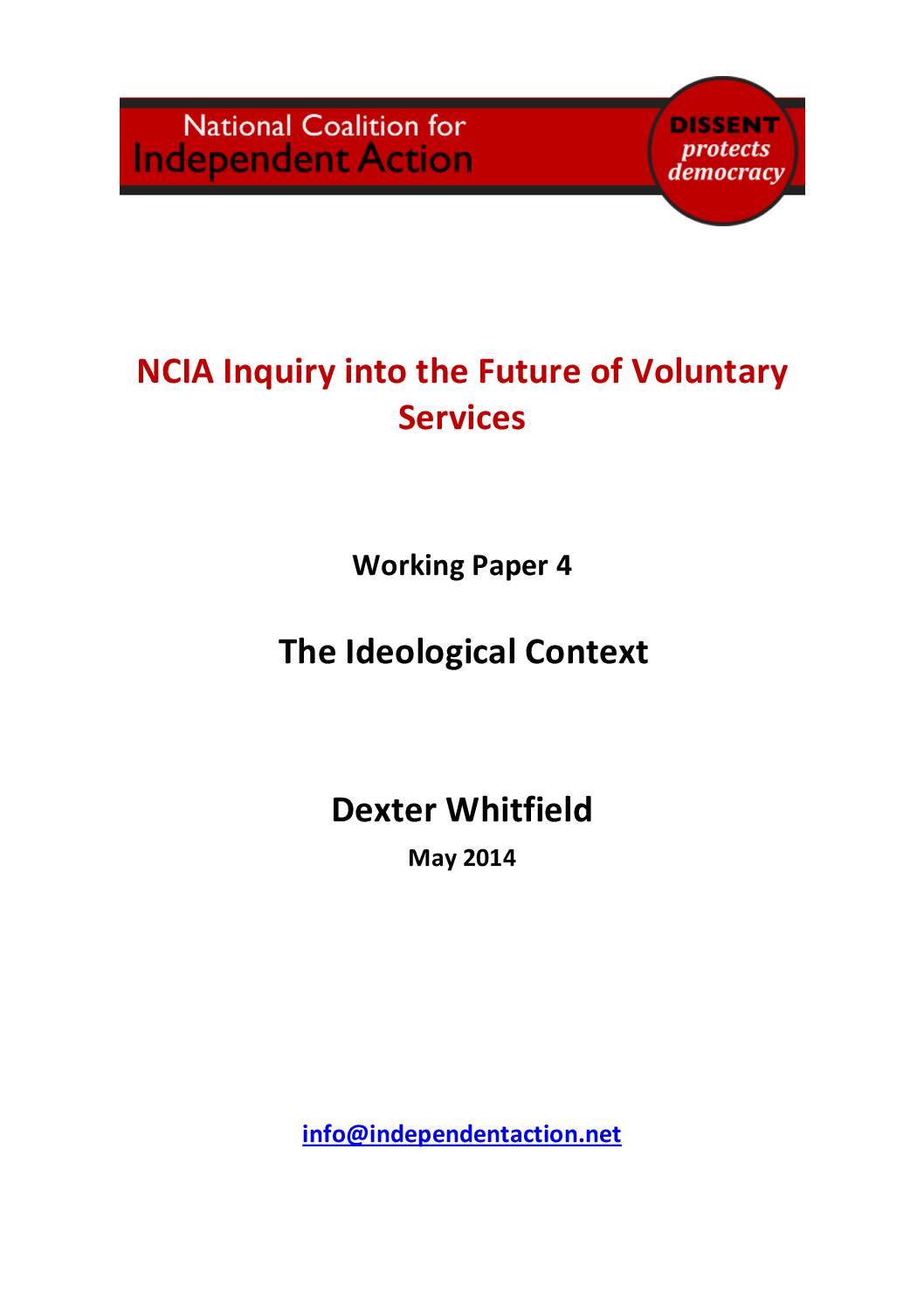Books and articles by Dexter Whitfield
Published on 19th November 2019. Last updated 16th December 2025.
-

Political Economy of Private Financed Social Services
A chapter by Dexter Whitfield in Privates Kapital für soziale Dienste? Wirkungsorientiertes Investment und seine Folgen für die Soziale Arbeit. Hrsg. von Monika Burmester, Emma Dowling & Norbert Wohlfahrt. 2017. Vlll, 180 Seiten. Kt. ISBN 9783834017505, €19.80 Grundlagen der Sozialen Arbeit Band 41, Schneider Verlag Hohengehren. The English version of the chapter can be downloaded. Table of Contents (German).
-

UNMASKING AUSTERITY: Lessons for Australia, by Dexter Whitfield
Documents why austerity failed and its disastrous economic and social effects in Europe and North America and highlights why Australia should not adopt these policies. Government debt continued to increase, reduced demand intensified the recession, negative or weak growth prevailed and the private sector failed to invest. The cost of lost output, reduced wealth, mass…
-

Infrastructure Investment – The Emergent PPP Equity Market
Increasingly governments are looking to private sector actors to invest in infrastructure projects. An emergent mechanism for such investment is the market in PPP equity. This is an aspect of PPPs that has to date had little empirical attention. This paper reports on the size and scope of the market in PPP equity sales within…
-

Unmasking Austerity
Unmasking Austerity: Opposition and Alternatives in Europe and North America, by Dexter Whitfield, Spokesman Books (eBook)
-

Fingers in the PFI, Red Pepper, Issue 188, February/March 2013
Assesses the turbulent times for PFI under the Coalition government and the wider costs and consequences. A so-called ‘new era’ PF2 makes marginal changes, except for allowing public sector bodies to participate in equity transaction profiteering. It concludes by discussing the rationale underpinning Labour’s silence on PF2.
-

Inquiry into the Future of Voluntary Services: The Ideological Context, Paper No. 4 – Dexter Whitfield
This paper for the National Coalition for Independent Action’s Inquiry examines neoliberal ideology and objectives and their role in the transformation of public services and the welfare state. The paper highlights ways in which voluntary sector organisations are being drawn into the commercialisation and marketisation of public services and the effects of a contract culture.
-

Should we turn the NHS into co-ops and mutuals?
Explains why the transfer of NHS and other public services to social enterprises, mutual or cooperatives is privatisation, irrespective of the ownership model, staff and user engagement, democratic structures and community support. It examines the pathways to markets, the performance of social enterprises and the way forward including the re-integration of client and contractor and…
-

In Place of Austerity
In Place of Austerity, Restructuring the economy, state and public services, by Dexter Whitfield, Spokesman.
-

The Future of European Welfare States
Review by Dexter Whitfield of European Welfare States after the Crisis: Changing Public Attitudes (by Policy Network, Institute for Public Policy Research and The Foundation for European Progressive Studies) in The Spokesman, No. 120, May, 2013 – http://www.spokesmanbooks.com. The paper does not recognise the financialisation, personalisation, marketisation and privatisation of public services and the welfare…
-

Plan B and Beyond
A critical assessment of Compass’s Plan B that reveals its shortcomings and need for a more radical and comprehensive socialist alternative, by Dexter Whitfield, Red Pepper Issue 182, Feb/Mar 2012.

